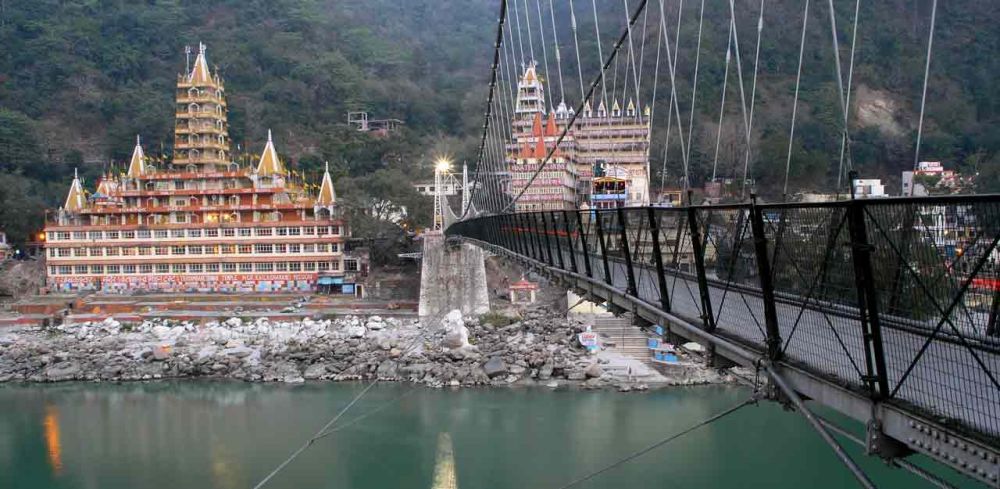

Nestled in the foothills of the Himalayas, Rishikesh is a city that spells charm and spirituality with its numerous temples, yoga centers, and picturesque locales. Amongst its many attractions, Laxman Jhula stands out as a historical and cultural landmark that draws tourists from all over the world.
The history of Laxman Jhula is steeped in the ancient lore. According to Hindu mythology, Laxman, the younger brother of Lord Rama, crossed the river Ganges on a jute rope. To commemorate this legendary event, a 450-feet long hanging iron bridge was constructed in 1929. Before this iron suspension bridge, a jute bridge used to exist at this place. The current bridge connects the two villages of Tapovan in the Tehri Garhwal district on the western bank, and Jonk in the Pauri Garhwal district on the eastern bank.
Despite being nearly a century old, it resonates with both historical significance and architectural wonder. The presence of temples around the Jhula adds to the spiritual aura that tourists come to seek.
Laxman Jhula has been a draw for pilgrims and adventurers alike for many years. The bridge and the surrounding region of Rishikesh started to gain a reputation as a spiritual center in the 1960s when The Beatles visited Maharishi Mahesh Yogi's ashram. This event put Rishikesh on the global map and marked the beginning of an influx of international tourists who were intrigued by Indian spirituality and culture.
Since then, the area has grown into a popular destination for yoga enthusiasts, adventure seekers, and those looking for spiritual solace. The growth in tourism has contributed to the local economy and has seen a burgeoning of hotels, cafes, and shops catering to the needs of a diverse set of visitors.
With the advent of adventure tourism and the escalating popularity of yoga and wellness retreats, Rishikesh, and Laxman Jhula specifically, have seen a new wave of tourism trends. White-water rafting, bungee jumping, camping, and trekking draw a younger, more adventure-oriented crowd. Yoga and wellness tourists continue to flock to the numerous ashrams and yoga centers that dot the town, some of which offer stunning views of the Ganges and surrounding mountains.
The use of technology has also taken root in enhancing the tourist experience with virtual tours, online bookings, and a social media presence that keeps the curious updated with the happenings around Laxman Jhula and Rishikesh.
In conclusion, the impact of Laxman Jhula on Rishikesh's reputation as a distinctive travel destination cannot be understated. The blend of history, culture, spirituality, and adventure makes it a spot with universal appeal, catering to a variety of tourism tastes and helping to maintain a steady flow of visitors all year round.